We first met Daniel at the 2018 Winter Youth Assembly at the United Nations in New York, where he pitched his venture, Suubi Community Development Project to Resolution judges. Read on to learn all that Daniel has achieved since 2018!
Please introduce yourself (name, age, college, country, background)
My name is Daniel Sebugwawo from Uganda. I am 32 years old and a member of The Resolution Project Class 10. I graduated from Cavendish University Uganda in 2020 with a Bachelors of Arts in International Relations and Diplomacy. I am passionate about social change, I believe humanity holds the key to creating and forming societies that are conducive to our sense of humanity.
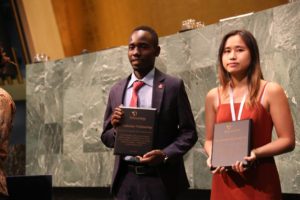
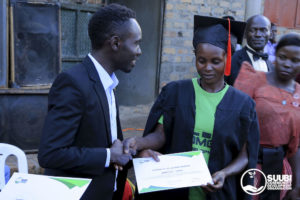
What three adjectives would people use to describe you?
- Selfless
- Ambitious
- Hard-working
What is your favorite book and why?
My favorite book is “Leading With A Limp” By Dan B Allender. This book offers a reflection into how we can draw strength and wisdom from our weaknesses. Rather than running away from our weaknesses, as leaders we can take full advantage and draw strength from them.
What is the issue your venture seeks to address?
We have two general issues our venture addresses: gender equality and empowerment of women and girls, and building sustainable cities and communities.
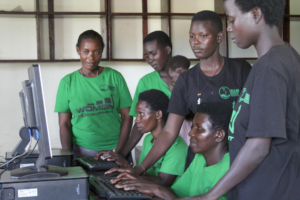
Have you been personally affected by this issue? If so, how?
Yes, I grew up an orphan and throughout my childhood I popped in and out of my relative’s home while getting through school. I stayed with my grandmother for a while, and she did not have a job or a stable source of income but somehow managed to feed and shelter over a dozen grandchildren, including me. My grandmother’s situation, both when I was young and today, is a reflection of so many mothers and grandmothers in my community and country. I started Suubi: “Women For Development Project” with this background on my mind. Thinking with just a slight mindset of sustainability, so many mothers, widows, girls and grandmothers can impact their homes and communities through entrepreneurship, education and other skills. I believe empowered women can be a solution to so many social problems in our society, that’s why I choose to empower women and girls.
How is your venture addressing these challenges?
Our work is based on three key pillars: Training, Equipping and Mentorship. We train women and young girls who have dropped out of school in entrepreneurship coupled with technology. Our training focuses on how to start up a small business and business management. We later provide startup loans as capital for the participants in the program to get started. We continue our support with a mentorship process that supports the women to navigate the different stages of starting up and growing their small businesses as well as loan utilization. We have trained over 115 women in the program and over 50 have started their own small business, mostly in agriculture.
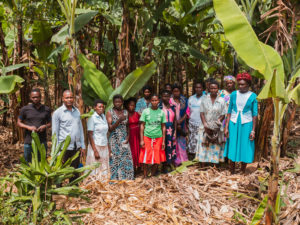
What does your venture hope to achieve?
Our goal is establishing a viable rural community development model that is based on women’s empowerment, highlighting gender equality in Uganda and Africa. We want to expand this model to other villages and communities all over the country, reaching more women, and supporting them in a sustainable manner.
What do you value most about the Resolution Fellowship?
The Resolution Project has been with us every step of the way. They provided the seed funding that got us started. Besides the seed funding, we have received mentorship in different dimensions which have largely shaped our leadership and management of Suubi.
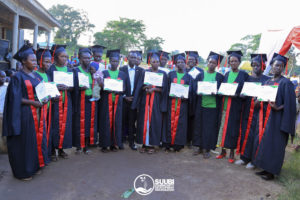
What do you love most about your home community?
Uganda is the most beautiful country due to the natural weather and warm-heartedness of the people. Uganda has a lot of opportunities with one of the youngest populations in the world. There is so much potential for growth in the country.
What role do young leaders play in the world today?
I believe young people look at the future of the world in a totally different perspective compared to the other generations before them. They have a lot of stake in the future and they want to shape this future but the opportunities, space and influence to do so is very limited. However, they are being more creative about it, taking advantage of technology and a more globalized world.